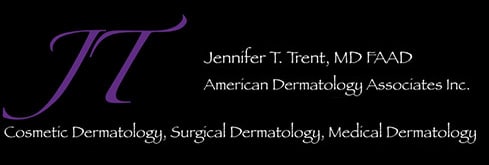Breast Cancer Awareness: What Does a Dermatologist Have To Do With It?!
- Posted on: Oct 25 2017
- Leave a response
October is Breast Cancer Awareness Month. Breast cancer is the second most common form of cancer in women. One in eight women born in the United States has a chance of being diagnosed with breast cancer at some time during her life. You may be wondering: “But what does breast cancer have to do with dermatology?” I strongly encourage both men and women to educate themselves about breast cancer.
association between breast cancer and melanoma
According to a study by the Irish Journal of Medical Science, there is a strong association between breast cancer and melanoma. Women with breast cancer have an increased risk of developing melanoma, the deadliest form of skin cancer. Women with melanoma are at a higher risk of developing breast cancer. In general, patients with melanoma or other skin cancers are always at higher risk of developing other malignancies. But this is about a fourfold increase, which raises the possibility of a genetic predisposition linking the two cancers.
Additionally, it is found that women under 50 years of age with breast cancer are at a higher risk of melanoma as are breast cancer patients who have been treated with External Radiation Therapy. Melanoma is the most common form of cancer in young adults 25-29 years old. Women under the age of 39 have a higher probability of developing melanoma than any other cancer except breast cancer. The Skin Cancer Foundation recommends that high-risk patients undergo an annual full-body skin screening by a physician.
Performed regularly, self-examination
Performed regularly, self-examination can alert you to changes in the skin and aid in the early detection of skin cancer (and breast cancer). While common moles are not cancerous, people who have more than 50 common moles have a higher risk of developing skin cancer. Now two studies seem to have found a link between moles and breast cancer. Both studies suggest that women with more moles are more likely to develop breast cancer.
Sometimes breast cancer cells spread to the skin
Sometimes breast cancer cells spread to the skin through the blood and lymphatic system and cause skin metastases. Skin, or cutaneous, metastasis (plural ‘metastases’) refers to the growth of cancer cells in the skin originating from internal cancer. The cells that have spread to the skin are breast cancer cells. It is not the same as having cancer that starts in the skin. In most cases, cutaneous metastasis develops after the initial diagnosis of the primary internal malignancy (e.g. breast cancer, lung cancer) and late in the course of the disease.
Learn More About Breast Cancer & Dermatology
An individual’s symptoms may include a change in the color of the skin or persistent rash. There may be a firm, painless nodule (small lump) or multiple nodules of different sizes. Sometimes the symptoms of skin metastases, such as redness and inflammation, may look like cellulitis (infection of the skin). Skin metastases can also cause lymphedema (swelling of the arm, hand or breast area). Other possible symptoms include pain, bleeding, infection and odor (smell). If anyone experiences these symptoms they should see a physician immediately.
Around one-fifth of people with secondary breast cancer will develop skin metastases. The most common sites affected are the areas near where the original cancer was – for example the skin of the chest wall, around the surgical scar or on the abdomen (belly). Less commonly, skin metastases can occur on other areas of skin, such as on the scalp, neck, back, and upper limbs. When breast cancer spreads to the skin, it can be treated but it cannot be cured. The purpose of treatment is to try to relieve symptoms, improve quality of life and slow the growth of cancer.
I urge everyone to schedule annual mammograms and skin checks. Most cancers are curable with early detection. So many of us have been affected by breast and skin cancer. Please join us in our efforts to raise awareness for them. Kiss Cancer GOODBYE!
Posted in: Skin Cancer, Uncategorized


